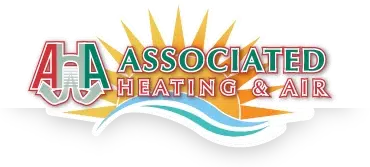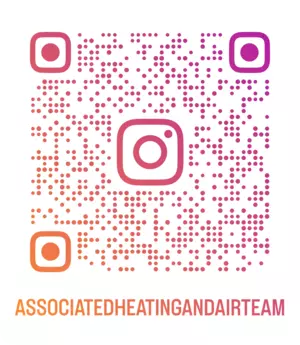Knowing when an AC system is experiencing problems can save you from more expensive repair bills. How do you identify potential issues with your home’s AC unit, though? Here is a look at some of the most common symptoms and the issues associated with them.
Worsening Performance
One of the earliest signs of trouble with an AC is reduced performance. You might notice that your air conditioner pushes less cool air than it used to, doesn’t put out any air or is pushing lukewarm air. The problem could be as simple as dirty condenser coils, which homeowners can clean by spraying the exterior components lightly with a hose. However, refrigerant levels could be low or the compressor might be failing, both jobs for one of our technicians.
Another common symptom is that the AC unit isn’t hitting the target temperature. It could miss it by several degrees over or under. This can indicate problems with sensors or the thermostat. If you have a heat pump, the coils could also be heating when they should be cooling. This issue could come from a clogged filter so one quick possible solution is to replace the air filter and see if the problem resolves.
Another common problem is short cycling. If the AC turns on frequently and runs for short periods, it may be calibrated improperly or have a bad sensor. The compressor could also be failing. These signs are often subtle and easy to miss until you spot a soaring electric bill. If your power bill is rising and isn’t related to increased utility rates or a heat wave, the problem might be an aging or failing HVAC system. The reduced efficiency is costing you money.
Leaks
All AC units expel some water as part of the dehumidification function. However, you should never see water pooling indoors or outside. Possible issues include refrigerant leaks, failing evaporator coils, a clogged drain or a malfunctioning fan motor. Dirty outdoor coils could also be the problem, and once more light spraying may fix the issue.
Noises
People often assume that an aging air conditioner is bound to get noisier, leading them to ignore signs that repairs might be necessary. If you ever hear any hissing sounds, there is a good chance your AC requires attention. Hissing sounds indicate potential leaks or compressor problems. Compressor repairs are some of the most expensive, so you want to address those as soon as possible.
Grinding, crunching, squealing and scraping sounds are also common. Fan belts can get noisy as they age, indicating that they require replacement. Failing fans and blower motors can also get quite noisy in AC systems. Some noises indicate problems with your HVAC ductwork. These tend to reduce airflow, negatively affecting your AC unit’s efficiency.
Electrical Problems
In most homes, a whole-house air conditioning system is one of the highest-draw devices. Consequently, malfunctioning AC units can trip circuit breakers. As AC units age, their electrical supplies can slowly drift out of spec. In some instances, this causes them to overload circuits and trip breakers. If your AC unit’s breaker repeatedly trips, ask one of our technicians to check the system out.
Ice Buildup
Ice buildup typically occurs on exterior AC components. The problem may be as simple as dirty condenser coils. Failing fan motors can also cause ice buildup.
When an AC unit operates optimally, it should have enough airflow to heat and remove ice from the coils. However, as its performance declines with age or mechanical failure, your AC can develop ice buildup. As counterintuitive as it may sound, this often happens on the hottest days. This is because the system is running the cooling the hardest on these days, not giving the coils time to cool down enough to de-ice themselves.
Excessive Cooling
Everyone has been in a home where it felt like an arctic blast when the AC came on. While this may seem like a good thing, it could also be a sign of trouble. If the system is overcharged with refrigerant, it could lead to excessive cooling.
Also, aggressive cooling could signal that your home’s AC system is oversized. A high-capacity AC unit in a small house could blast it with cooling. Look at your electric bill and see if it seems a little high during peak cooling months. An oversized AC tends to be inefficient so this is an easy way to check.
The airflow in your home could also be imbalanced. Even something as simple as furniture blocking a key vent or air return can significantly disrupt your home’s HVAC airflow. Leaky ductwork could also be to blame, or the home might not have enough fans in the ducts to provide sufficient airflow, necessitating upgrades. In a large home, you may consider a zoned HVAC system that uses fans and dampers to control how much cooling reaches specific rooms.
High Humidity
An air conditioning system should offer some degree of dehumidification. While people often assume that the dry air here in Anaheim, CA should automatically ensure a home is properly dehumidified, that isn’t always the case. Especially if your home has a tight ventilation system and lots of insulation, humidity can build up indoors. This is especially the case if your AC system is aging. Likewise, it can happen if your home has an undersized AC setup.
If you see condensation forming on windows, that is a sign of serious humidity problems. You might also notice condensation in cooler areas, especially if your house has a basement. If your AC previously could handle these problems, then the issue is most likely a performance decline due to age. If it has always had trouble, then it may be undersized. Depending on your needs, you might want to replace the AC system or add a dehumidifier to help it.
Poor Indoor Air Quality
A lot of the air circulating in your home passes through your HVAC at some point. Poor indoor air quality is almost always related to the system in some way. Humidity can encourage mold growth, which sometimes shows up when the spores settle as dust on surfaces in your home. Pet dander and even dry skin cells from people can accumulate inside homes.
Similarly, your AC system may not have sufficient filtration to contend with local environmental issues. A nearby highway or factory could cause pollution to enter your home, leaving dust or soot behind. Nearby plants can lead to pollen infiltrating.
If anyone in your home has recurring respiratory issues, indoor air quality is likely the culprit. Problems are more common if someone has allergies, asthma or another medical condition. The fix could be as simple as increasing your filter replacement schedule. However, you may also want to explore options like adding a humidifier, dehumidifier, UV light filter or an air scrubber.
If you’re concerned about an AC system in Anaheim or a nearby area, contact Associated Heating & Air right away.



